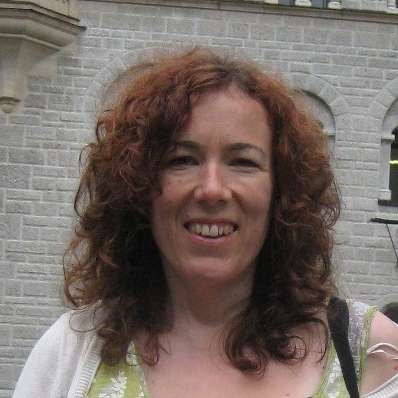Over the last few years, The Sixteen’s Choral Pilgrimage programmes have paired renaissance and modern composers, exploring the links between old and new: Byrd and Pärt, Palestrina and Poulenc and this year Musical Director Harry Christophers mixes Benjamin Britten with music by the Tudor composers who bore the name “William Cornysh” – possibly a father and son. Britten drew heavily on England’s musical and literary heritage in his music, and both he and the Cornyshes were not afraid to tackle highly complex and colourful texts, so that as The Sixteen’s programme flowed back and forth between the ages, the gap across the centuries was dissolved.
The two Latin settings on the programme, Salve Regina, mater misericordiae and Ave Maria, mater Dei, are probably by the older Cornysh. The Sixteen were, as ever, all polished perfection, but also sensitive to all the shifting colours and interesting detail in the music, and were adept at carrying the sense of the text through the syllables stretched to breaking point . Salve Regina is a monumental work, and Christophers led his singers deftly through all its changes of mood, overcoming the dense complexities of the music to create a furiously punchy climax as the text describes Christ’s sufferings, and then suddenly releasing the tension, to end in a sweet, soft glow.
Woefully Arrayed is one piece clearly identified in manuscript as being by “William Cornysh Junior”. Cornysh wraps brutal words spoken directly by Christ from the cross in gorgeously expressive music, beginning with a striking and stark opening solo sung by tenor Tom Robson. The effect was uncomfortably like looking at a sumptuous Renaissance paintings of the crucifixion where beauty and torture are all rolled into one.
With its mixture of graphic human suffering and divine love Woefully Arrayed straddled the programme’s themes of the sacred and profane, whilst two little secular songs for lower voices by Cornysh, set firmly in the world of men and their love affairs. Cornysh’s greatest hit Ah Robin, made famous as the theme music for the BBC’s adaptation of Wolf Hall was sung very slowly and thoughtfully by the three male soloists, as if they were quietly exchanging thoughts about the inconstancy of their women over a few tankards of ale.
Music from both ends of Britten’s life bookended the programme, and each showed the composer’s assurance at setting medieval poetry. The Sixteen opened with the simple radiance of A Hymn to the Virgin, written when Britten was just 16, and ended with Sacred and Profane one of Britten’s last works. A Hymn to the Virgin was sung with unfussy purity, and spacious silences, building to a lovely festive and celebratory mood in the last verse. Sacred and Profane is at the other end of the scale: a deeply complex and virtuosic setting of eight medieval poems in which the simple joys of life alternate with unflinching meditations on death. The Sixteen danced brightly through the pastoral texts; Lenten is Come and Carol were both sweetly sensuous and playful, and the crazy mutterings of I mon waxe wod (I must go mad) were spat out with viciously tight precision. In the midst of life, we are in death, and so mood turns abruptly for the last two poems. Like Woefully Arrayed, Ye that pasen by is spoken by Christ on the cross, although here perhaps it’s also a reflection of Britten’s own thoughts during his last illness, as he then tears into a A Death, a graphic poem in which a corpse recounts the physical consequences of death. The Sixteen brought out all the black humour in Britten’s music, laughing in the face of death and ending with defiance.
Advance Democracy was a curiosity on the programme, not quite fitting with the rest of the theme but in its call to rebuild a better society it echoes sentiments that are as relevant today as when the text and music were written in the 1930s. The Sixteen with brooding, jittery nervousness, before building to a simple rallying cry for freedom that rang out as if being sung at a workers’ demonstration. Hymn to St Cecilia, on the other hand, is one of Britten’s best-known pieces, but in the hands of The Sixteen it felt entirely new. Christophers powered through the opening section, bringing out every dynamic detail – massive power on “notes tremendous” and a good dose of naughtiness for the appearance of naked Aphrodite. The sopranos and tenors darted lightly through part two whilst part three was laden with sadness that intensified with each harmonic shift. Soprano Julie Cooper brought an usually adult warmth to the “dear white children” solo that was more effective than the child-like purity that we usually hear here.
It was an extraordinary and moving performance that lifted the piece to a whole new level of drama and musicality that few choirs can manage to achieve.


